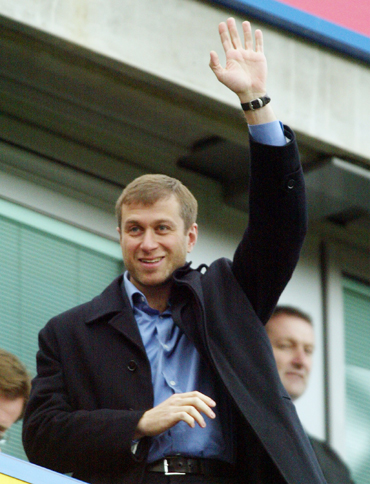
Bikash Mohapatra takes a look at the Premier League clubs with foreign ownership.
English Premier League.
The biggest football league in the world.
No wonder, every name that matters wants to have his share of the pie.
Time and again we have heard news reports regarding tycoons either buying a stake in a Premier League club or evincing an interest to do so.
The latest to join the bandwagon is Chinese billionaire Kenny Huang.
Huang, the chief executive of Chinese sports investment company QSL, is apparently in negotiations to take charge of Liverpool.
Whether the deal materialises or not, one thing is for sure: the ownership of EPL clubs is more likely to change hands (rather foreign hands) frequently now than ever before.
Rediff.com takes a look at the Premier League clubs which have foreign ownership.
Chelsea
(Roman Abramovich)
Abramovich started the trend.
In 2003, the Russian oil magnate became the owner of the Stamford Bridge-based club. Then, at 140 million, it was the biggest-ever sale of an EPL club.
The billionaire also loosened his purse considerably to acquire big players and managers.
The result: Chelsea won three league titles, three FA Cups and two League Cups since.
The next target: Champions League glory.
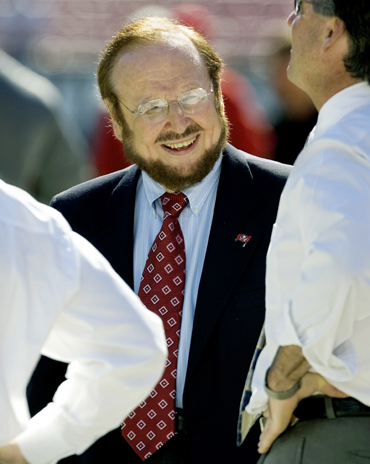
Manchester United
(Malcolm Glazer)
Manchester United, having thwarted a takeover bid from Rupert Murdoch's British Sky Broadcasting Corporation in 1998, couldn't thwart Malcolm Glazer.
Glazer had other sporting interests, most notably the ownership of the NFL team Tampa Bay Buccaneers before his acquisition of Man U.
However, in 2005, when Glazer acquired a controlling interest in the Old Trafford club through his Red Football Shareholder Ltd, it was considered a breakthrough deal.
There were protests galore from the club supporters and the clubs debts increased manifold, but the club did well in terms of results, winning amongst others three Premier League titles and a Champions League thereafter.
However, earlier this year reports emerged that the Manchester United Supporters' Trust had held meetings with a group of wealthy fans, or the Red Knights, with plans to buying out the Glazers' controlling interest.
But the Glazers have been quoted as saying that they are not interested in selling.
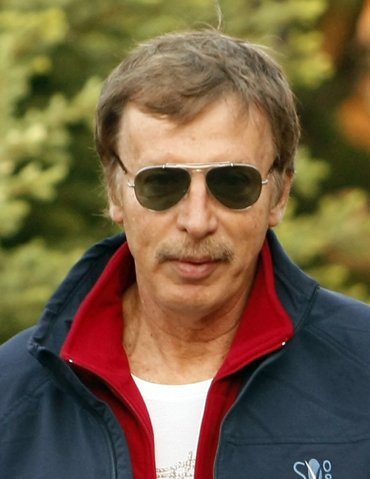
Arsenal
(Stanley Kroenke)
The Arsenal ownership saga has enough twists and turns to provide the plot for a Bollywood potboiler.
The club's parent company, Arsenal Holdings plc, operates as a non-quoted public limited company, whose ownership is considerably different from that of others.
Among the 42.5 per cent of Arsenal's shares that its board of directors currently hold, Stan Kroenke is the largest shareholder.
The American sports tycoon launched a bid for the club in 2007 and in November last year increased his stake to 29.9 per cent.
However, that isn't all.
A rival bid to Kroenke's came in August 2007 from Red & White Securities, co-owned by Russian billionaire Alisher Usmanov and London-based financier Farhad Moshiri.
Usmanov now has a 25 per cent stake in the club.
This has ensured speculation in the media of a bidding war between Kroenke and Usmanov.
Though all is quite on that front with Kroenke having agreed not to purchase more shares of the club one can never say never.
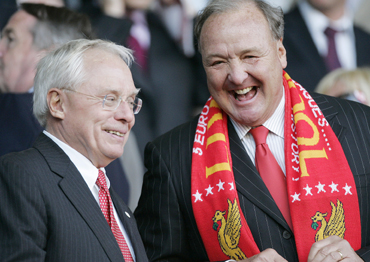
Liverpool
(Tom Hicks and George Gillett, Jr)
Liverpool was in a financial crisis in the middle of the last decade when help came from across the Atlantic.
In February 2007, the Anfield club's search for investment came to an end when it was acquired by American businessmen George Gillett, Jr and Tom Hicks.
However, it has been anything but smoothsailing since.
Besides the club's lack of trophies - most notably its inability to win the elusive Premier League title - there have been disagreements between the two owners, and widespread reports of fans' dissatisfaction.
There were rumours some time back that Dubai International Capital (DIC), a firm that had evinced interest in buying the club before Gillett and Hicks took over, would renegotiate a deal.
However, it never materialised. Other efforts also failed.
Earlier this year, Martin Broughton was appointed chairman of the Club in order to oversee the sale by the owners.
And now comes news of a bid by Kenneth Huang.
Wait till you hear more.
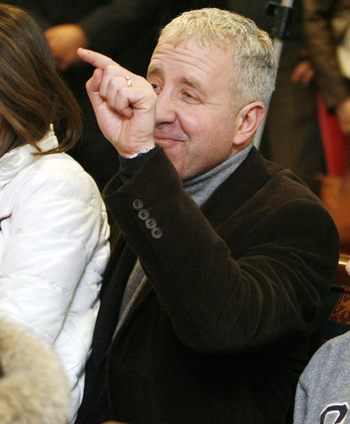
Aston Villa
(Randy Lerner)
It was smooth transition in this case.
Doug Ellis, the previous owner -- with 38 per cent shareholding -- and chairman, having been in control for 23 years, finally decided to sell his stake owing to ill-health.
In August 2006, the Villa Park-based club was acquired by American business tycoon Randy Lerner, with the latter becoming the majority shareholder by virtue of securing almost 60 per cent of the club's shares.
Lerner, owned the NFL franchise, the Cleveland Browns, and knew exactly what he had to do. He soon increased his stake to almost 90 per cent.
What followed was change, in almost every department.
From players to coach to sponsors and even the crest.
Martin O'Neill managed to assemble a good team that came close to winning a trophy this year - they lost to Manchester United in the League Cup final.
A few good purchases and the club can dream of winning silverware in the upcoming season.
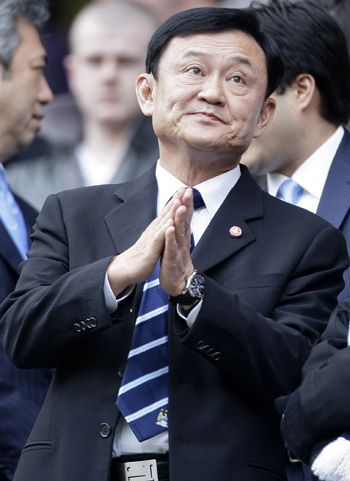
Manchester City
(Sheikh Mansour bin Zayed Al Nahyan)
The ownership of this club has changed hands frequently in recent times.
Manchester City has been in private hands since 2007.
This year the club's major shareholders agreed to sell their holdings to UK Sports Investments Limited (UKSIL), a company controlled by former Thailand prime minister Thaksin Shinawatra.
Shinawatra, after having acquired 90 per cent of the shares, de-listed the club and re-registered it as a private company.
Sven-Goran Eriksson was appointed the coach and a slew of purchases were made.
The club also registered their best Premier League finish (ninth).
But the Thai sold the club sooner than he purchased it.
In September 2008, the club was taken over by Abu Dhabi United Group Investment and Development Limited in a deal worth 200 million.
This made the club one of the most financially powerful in the world, resulting in the transfers of a number of high profile players.
The results, on the field, aren't even satisfactory though.
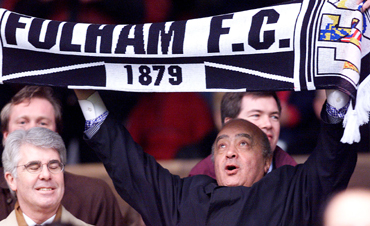
Fulham FC
(Mohamed Al-Fayed)
Fulham FC is one of the biggest success stories in recent times.
When Egyptian millionaire Mohamed Al-Fayed purchased the club in 1997, the club was loitering in the third division.
However, it was a complete turnaround since then.
With Kevin Keegan as their manager, the club soon secured promotion.
The Craven Cottage-based club have been in the top flight for some time now.
And Roy Hodgson, now in charge of Liverpool, led them to the final of the Europa League last season.
Fulham may have lost to Atletico Madrid on the day but the world took notice of a club that is here to stay.
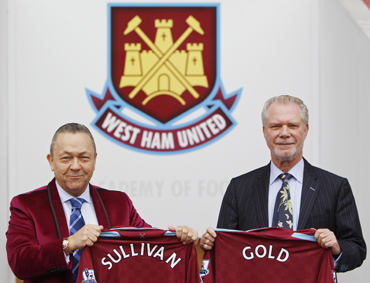
West Ham United
(David Gold and David Sullivan)
West Ham is another club that has witnessed many ownership changes in recent years.
The club, based at Upton Park, was owned by Terry Brown.
However, Eggert Magnusson and Bjorgolfur Gudmundsson took over ownership in 2006, with the former stepping down a year later.
In June last year, Icelandic CB Holding which is 70 per cent owned by Straumur-Burdaras bank and 30 per cent owned by Icelandic-based banks Byr and MP took over Hansa Holding, which only had West Ham United as their asset and filed for bankruptcy protection.
And earlier this year, David Sullivan and David Gold acquired a 50 percent share in West Ham, from CB Holding, given them overall control of the club.
The duo purchased an additional 10 percent stake a few moths later.
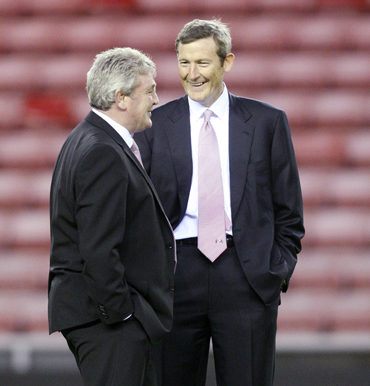
Sunderland AFC
(Ellis Short)
Ellis Short's takeover of Sunderland was faster than expected.
In September 2008, the American businessman, acquired a 30 per cent stake in the club.
In less than a year, Short had obtained full control of the club.
This made Short the fourth American to have ownership in the Premier League after the Glazer family, Hicks and Gillett Jr and Lerner.
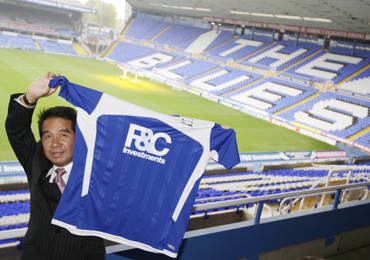
Birmingham City
(Carson Yeung)
The St Andrews club went under Asian control three years back.
Carson Yeung, a Hong Kong-based businessman, purchased 29.9 per cent of Birmingham City's shares through the company Grandtop International Holdings Limited in July 2007.
This made him the biggest single shareholder and in no time he increased his holding past the 90 per cent mark.
Birmingham City was registered as a private company with effect from November 2009.